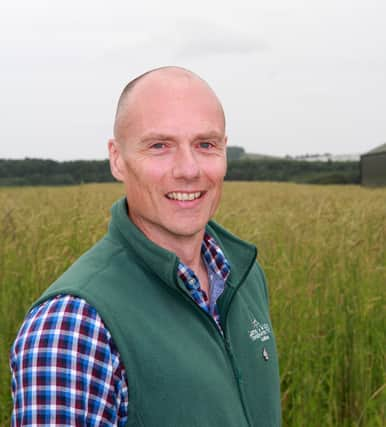Greater emphasis needed on environment to make farming more sustainable - Dr Dave Parish


There has been much scrutiny of the subsidy system which consumed around £500 million of public money in both 2014 and 2015 in Scotland and it seems likely that the nature of these payments will change in future. It is widely accepted that there needs to be a greater emphasis on environmental concerns to make farming more sustainable in the long term. There are lots of buzz words associated with this like Natural Capital and Ecosystem Services, but basically this means that farmers will probably need to produce food whilst reducing negative impacts they may have on the natural environment to qualify for payments. This may mean farmers will need to help reduce soil erosion on their land or slow the rate at which rainfall leaves the farm to reduce flood risk downstream, or perhaps do more to reduce carbon emissions or support struggling wildlife.
How this will be achieved is not yet clear. The Game & Wildlife Conservation Trust, with partners across Europe, is involved in a project called PARTRIDGE, funded by the EU North Sea Region Interreg programme, looking at agri-environment schemes and how they might be improved. This recently involved interviewing stakeholders in each of the partner countries to better understand their perception of agri-environment schemes and farming’s place within the wider environment. The results were illuminating.
Advertisement
Hide AdAdvertisement
Hide AdThe verdict on the current agri-environment scheme in Scotland was damning. The application procedure was seen as too complex, with farmers often hiring consultants to help, adding a significant cost with no guarantee of success. The scheme itself was found to be poorly financed, inflexible and prescriptive, forcing all farmers to follow the same guidelines regardless of where they were in the country and the nature of their farm or the conditions they faced at the time. Plus, there was no free advice available whilst farmers were implementing their management plans should they encounter a problem. There was also some concern at the fact that the scheme isn’t formally monitored to see if it’s working. Random inspections check to see if farmers are sticking to their agreements, but no-one is looking to see if the ‘wild bird seed for farmland birds’ option has actually been used by birds, for example.
What lessons might there be for policy makers as they consider future agricultural support mechanisms? The interviewees were keen that farmers should be allowed to use their skills and local knowledge to achieve desired outcomes in future schemes, with payments better covering all the costs involved and perhaps reflecting the results achieved rather than simply the actions carried out. For example, farmers might receive a flat rate based on their plan with top-ups available if they hit agreed targets. This would require a change in the way schemes are monitored, but this could easily include a role for the farmers themselves and would help show the public the environmental work that farmers do. They were also keen to see more information available for farmers, ideally via a free advisory service that could provide on-farm, bespoke advice, to help increase the impact of plans.
Fortunately, the signs for future agricultural support look promising. NatureScot, the Scottish Government’s conservation agency, has started a pilot scheme to look at a payment by results approach. This is a welcome development that stakeholders across Scotland will be watching carefully.
Dr Dave Parish, Head of Scottish Lowland Research, Game & Wildlife Conservation Trust
Comments
Want to join the conversation? Please or to comment on this article.